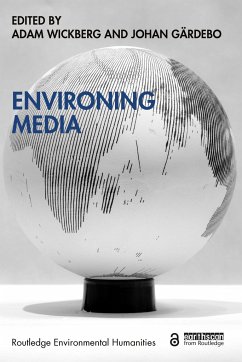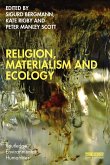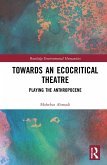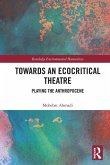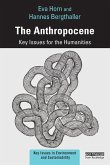This edited volume interrogates the role of media technologies in the formation of environments, understood both as physical spaces and as epistemological constructs about them. Using the concept of 'environing media', the book advances a deeper understanding of how media processes - defined here as the storage, process, and transmission of data - influence human-Earth relations.
Virtually all aspects of the interconnected global ecological crisis can be related to the intensification and acceleration of scaling up the human imprint on the planet by technological means. Combining ideas from the humanities, arts, and humanistic social sciences, Environing Media offers a perspective on how we entered the current geological epoch - the Anthropocene. The ten chapters explore colonial, planetary, and elemental environing media, with cases including indigenous history, ocean monitoring, computational history, climate modeling, environmental history, the air as medium, the biosphere, and the Earth system.
Drawing upon a breadth of examples and expertise in history, anthropology, geography, cultural history, science and technology studies, and media studies, the book discovers a novel approach to human-Earth histories that demonstrates how technologies have mediated between humans and environments and in the process contributed to a societal feedback loop between knowing and doing environment, each impacting the other. Environing Media is a timely addition for scholars and upper-level students in environmental humanities and media studies.
The Open Access version of chapters 1, 2, 3, 4, 5, 7, 8, and 9 are available at http://www.taylorfrancis.com/books/e/9781003282891. Chapters 1, 2, 4, 5, and 7 have been made available under a Creative Commons Attribution-Non Commercial-No Derivatives 4.0 (CC BY-NC-ND 4.0) license. Chapters 3, 8, and 9 have been made available under a Creative Commons Attribution (CC-BY 4.0) license.
Virtually all aspects of the interconnected global ecological crisis can be related to the intensification and acceleration of scaling up the human imprint on the planet by technological means. Combining ideas from the humanities, arts, and humanistic social sciences, Environing Media offers a perspective on how we entered the current geological epoch - the Anthropocene. The ten chapters explore colonial, planetary, and elemental environing media, with cases including indigenous history, ocean monitoring, computational history, climate modeling, environmental history, the air as medium, the biosphere, and the Earth system.
Drawing upon a breadth of examples and expertise in history, anthropology, geography, cultural history, science and technology studies, and media studies, the book discovers a novel approach to human-Earth histories that demonstrates how technologies have mediated between humans and environments and in the process contributed to a societal feedback loop between knowing and doing environment, each impacting the other. Environing Media is a timely addition for scholars and upper-level students in environmental humanities and media studies.
The Open Access version of chapters 1, 2, 3, 4, 5, 7, 8, and 9 are available at http://www.taylorfrancis.com/books/e/9781003282891. Chapters 1, 2, 4, 5, and 7 have been made available under a Creative Commons Attribution-Non Commercial-No Derivatives 4.0 (CC BY-NC-ND 4.0) license. Chapters 3, 8, and 9 have been made available under a Creative Commons Attribution (CC-BY 4.0) license.
'Environing Media is one of those smart books that presents interesting case studies while offering a platform for a broader discussion converging with environmental media studies with a dose of history of science thrown in for good measure. [It] is an enjoyable read with several case studies but also methodological cues that are of interest; to read models, graphs, deep sea cores, autonomous floats (the Argo program), and other scientific examples as media is among those. Similarly, it is always refreshing to read examples beyond the usual Anglo-American world - in this case from Mexico to Sweden - that are not treated merely as exceptions to the rule but as integral components in the planetary histories of environmental data. "Environing media" helps to figure out how to read environmental data as a recursive concept that both defines a particular process of datafication while [it] participates in the transformation of its own referent in that process.'
Jussi Parikka, in an excerpt from a review in Leonardo Journal
'Environing Media offers a conceptually rich and theoretically sophisticated exploration of media forms' role in shaping environments. Moving beyond the separation of nature and culture, the authors chart an array of new, mediated epistemologies for the planet. This text will be an essential contribution to the discourse on media and environment.'
Nicole Starosielski, New York University, USA
'Environing Media explores the history of relations between humanity and the Earth through a series of fascinating and far-reaching case studies. Environing technologies produce both environmental knowledge and environments themselves. In this novel and important book, the concept of environing media becomes a key that unlocks the interplay of ideas, technologies and physical transformations. Environing is the process of human shaping of the Earth, and it is environing media that has pushed the planet into the new geological epoch of the Anthropocene. From the record keeping of Spanish imperialism to debates about planetary boundaries and biosphere, from floating ocean robots to expedition to collect deep sea cores, from the diagrams of climate modelers to the air around us, Environing Media shows the critical importance of historical understandings of the interplay among technology, history and society.'
Bill Adams, University of Cambridge, UK, and the Geneva Graduate Institute, Switzerland
'Through rich case studies, this book offers new and important insights into the field of the environmental humanities and a broader understanding of the evolving human-Earth relationship. By drawing on examples such as climate scenarios, air pollution, oceanography, planetary vision, Human-earth histories, technospheres and media infrastructures, the chapters in the volume provide fresh perspectives and, in a witty way, reveal how media ties into the environment by rethinking the relationship between humans and nature. This is a book that deserves a wide readership in the field of environmental humanities and beyond.'
Birgit Schneider, Professor for knowledge cultures and media environments, Potsdam University, Germany
Jussi Parikka, in an excerpt from a review in Leonardo Journal
'Environing Media offers a conceptually rich and theoretically sophisticated exploration of media forms' role in shaping environments. Moving beyond the separation of nature and culture, the authors chart an array of new, mediated epistemologies for the planet. This text will be an essential contribution to the discourse on media and environment.'
Nicole Starosielski, New York University, USA
'Environing Media explores the history of relations between humanity and the Earth through a series of fascinating and far-reaching case studies. Environing technologies produce both environmental knowledge and environments themselves. In this novel and important book, the concept of environing media becomes a key that unlocks the interplay of ideas, technologies and physical transformations. Environing is the process of human shaping of the Earth, and it is environing media that has pushed the planet into the new geological epoch of the Anthropocene. From the record keeping of Spanish imperialism to debates about planetary boundaries and biosphere, from floating ocean robots to expedition to collect deep sea cores, from the diagrams of climate modelers to the air around us, Environing Media shows the critical importance of historical understandings of the interplay among technology, history and society.'
Bill Adams, University of Cambridge, UK, and the Geneva Graduate Institute, Switzerland
'Through rich case studies, this book offers new and important insights into the field of the environmental humanities and a broader understanding of the evolving human-Earth relationship. By drawing on examples such as climate scenarios, air pollution, oceanography, planetary vision, Human-earth histories, technospheres and media infrastructures, the chapters in the volume provide fresh perspectives and, in a witty way, reveal how media ties into the environment by rethinking the relationship between humans and nature. This is a book that deserves a wide readership in the field of environmental humanities and beyond.'
Birgit Schneider, Professor for knowledge cultures and media environments, Potsdam University, Germany

